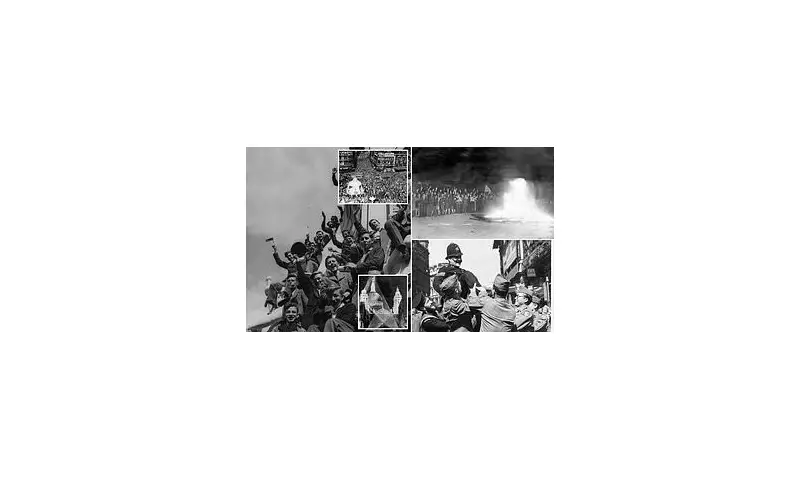
On the historic day of August 15, 1945, Britain erupted in celebration as news of Japan's surrender in World War II spread like wildfire. The streets were alive with unbridled joy as crowds gathered to mark Victory over Japan Day (VJ Day), a momentous occasion that brought an end to years of conflict and hardship.
A Nation Rejoices
From London to Liverpool, impromptu street parties broke out as people danced, sang, and embraced strangers in a collective outpouring of relief. Bonfires lit up the night sky, symbolising the end of darkness and the dawn of peace. For many, it was a chance to finally reunite with loved ones who had served in the Far East.
Spontaneous Celebrations
Eyewitness accounts describe scenes of pure elation: 'People were kissing anyone they could find - it didn't matter if you knew them or not,' recalled one Londoner. In Trafalgar Square, sailors climbed lampposts while others waded through the fountains, their uniforms soaked in champagne rather than seawater for once.
The Royal Family's Role
King George VI addressed the nation from Buckingham Palace, his words carrying special significance for families with relatives in Japanese prisoner-of-war camps. Princess Elizabeth, the future Queen, joined the celebrations incognito among the cheering crowds - a rare moment of anonymity for the young royal.
Lasting Legacy
While VE Day had marked Germany's defeat months earlier, VJ Day held particular emotional weight for British forces who had endured brutal conditions in the Pacific theatre. Today, these vivid memories of national unity and triumph continue to inspire commemorations across the country, reminding new generations of the sacrifices made for peace.





